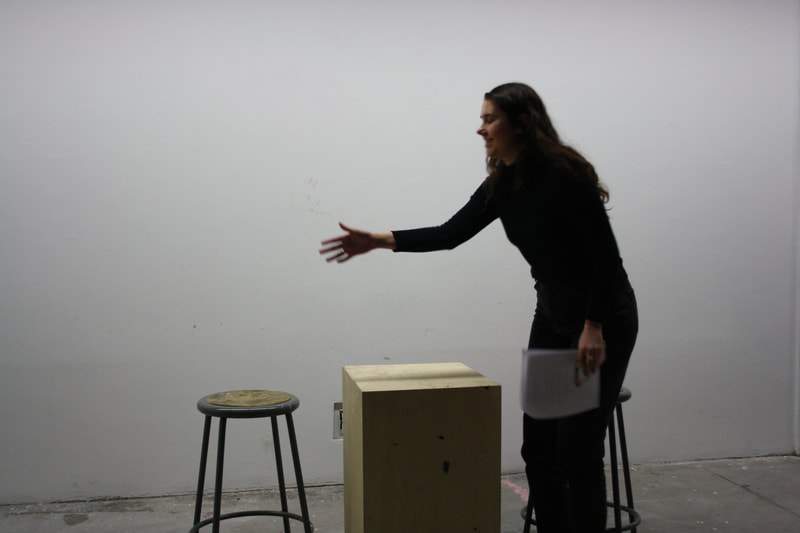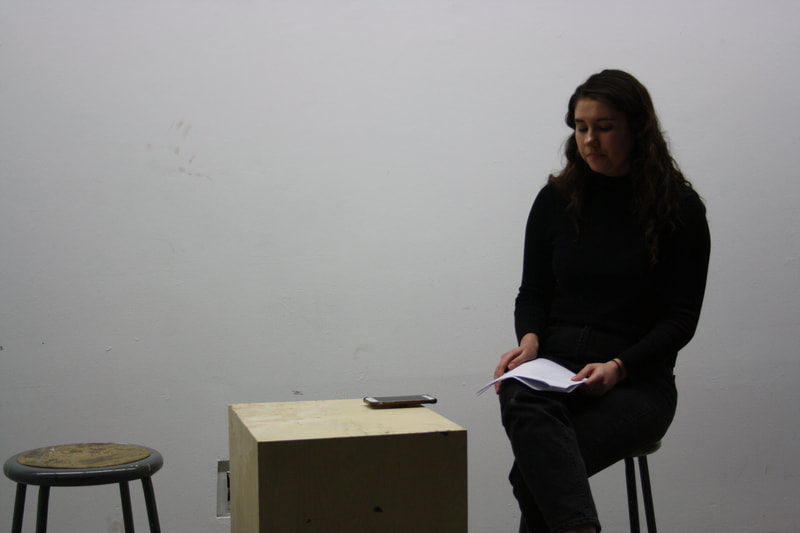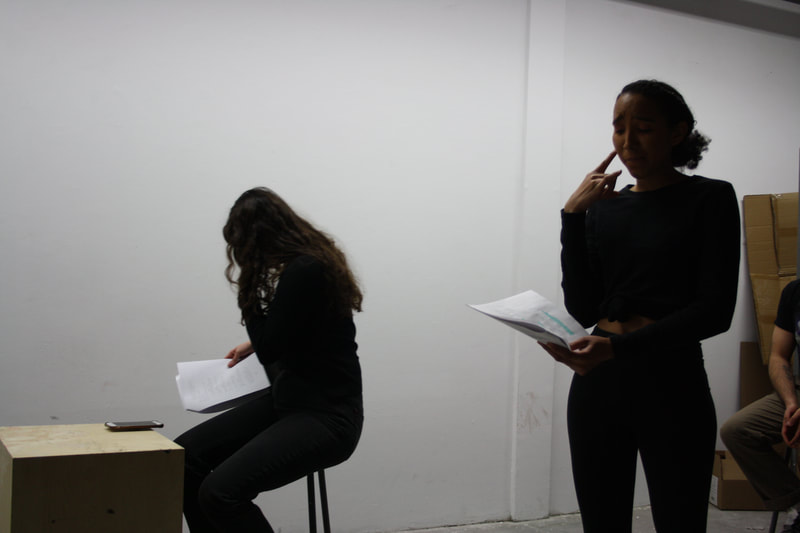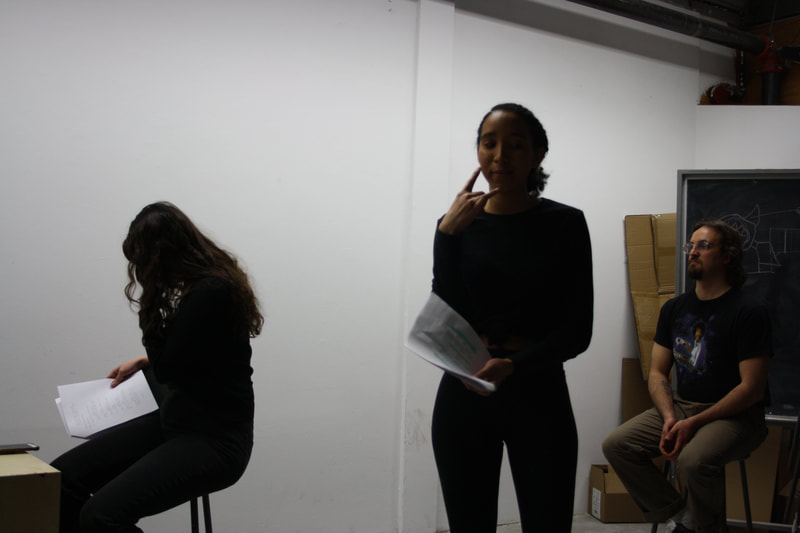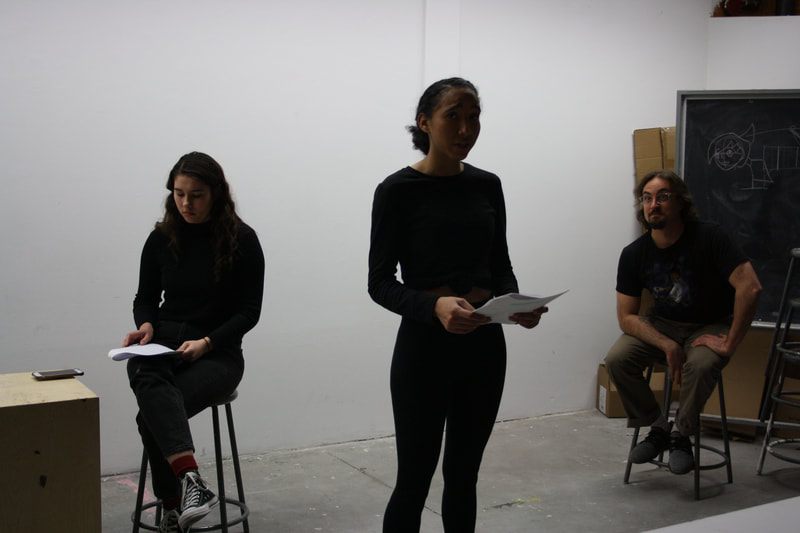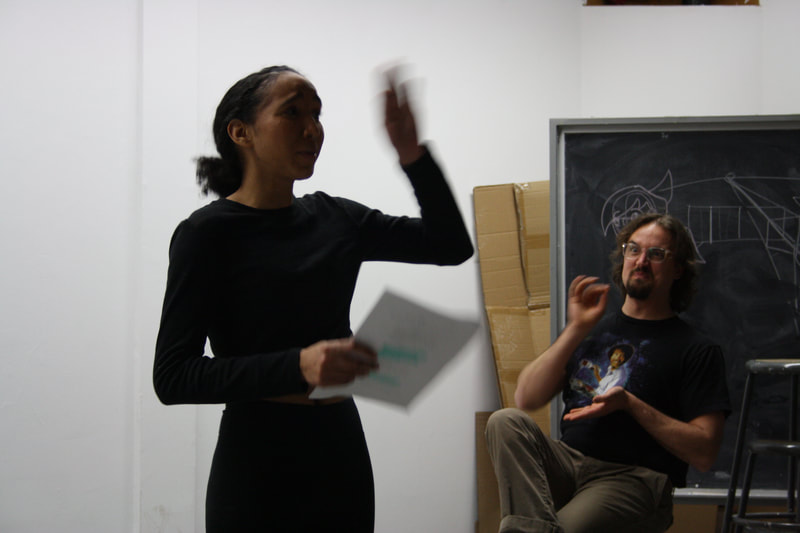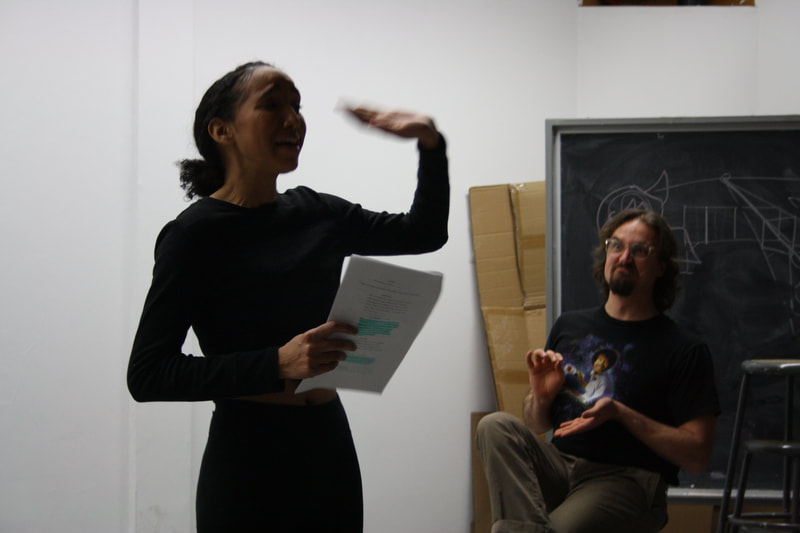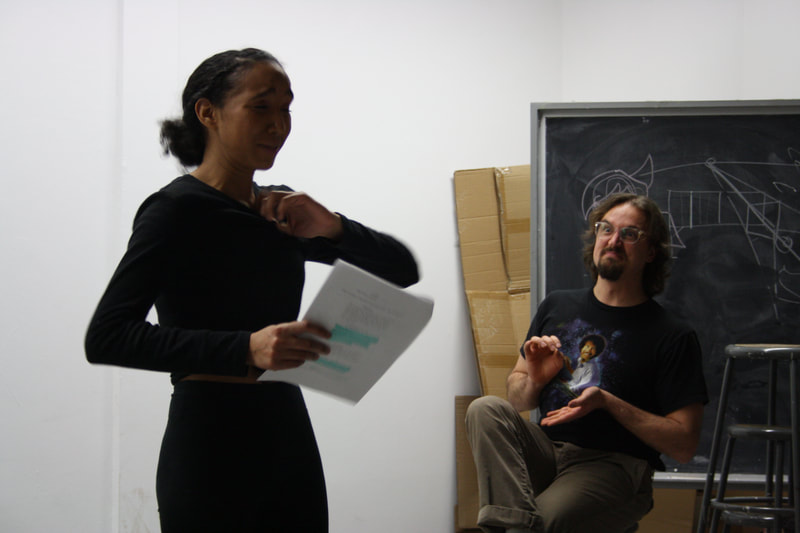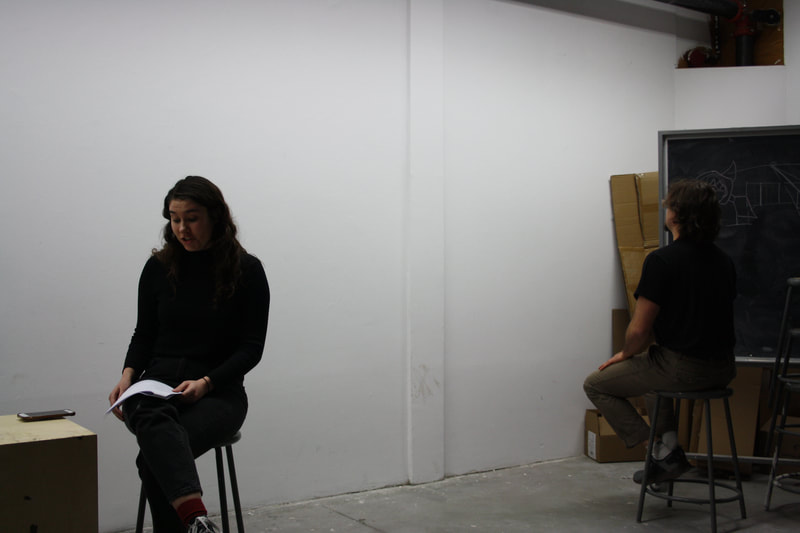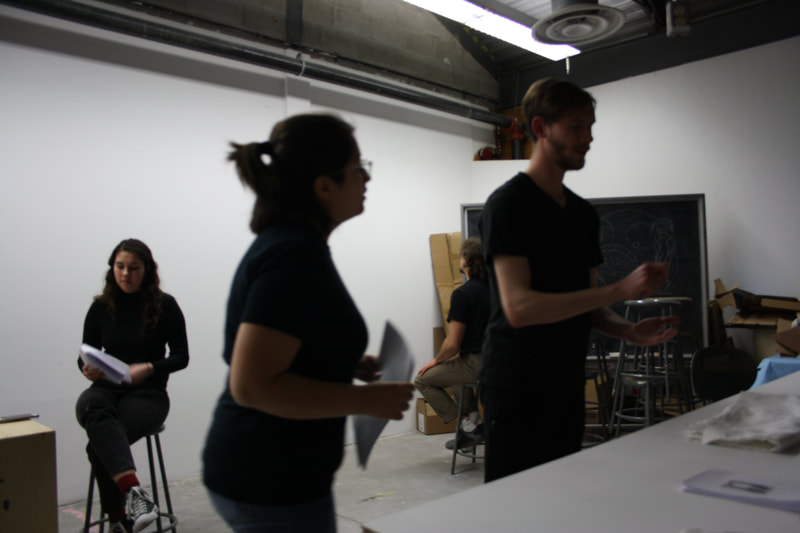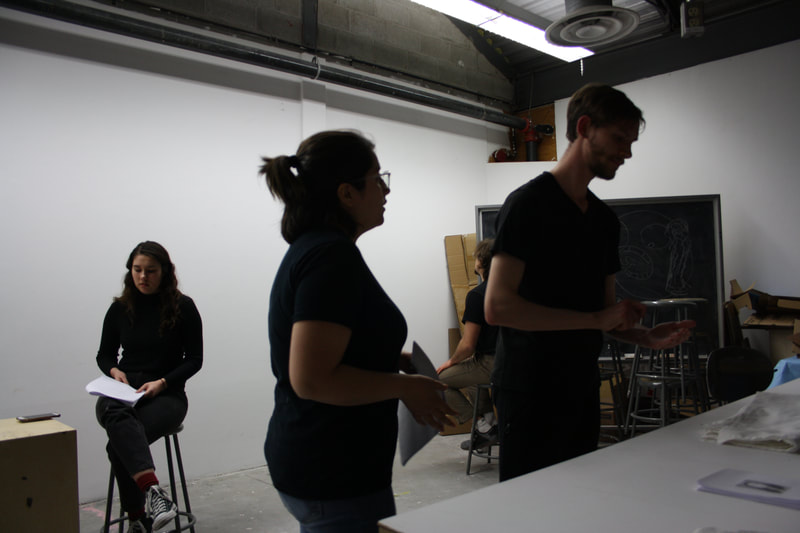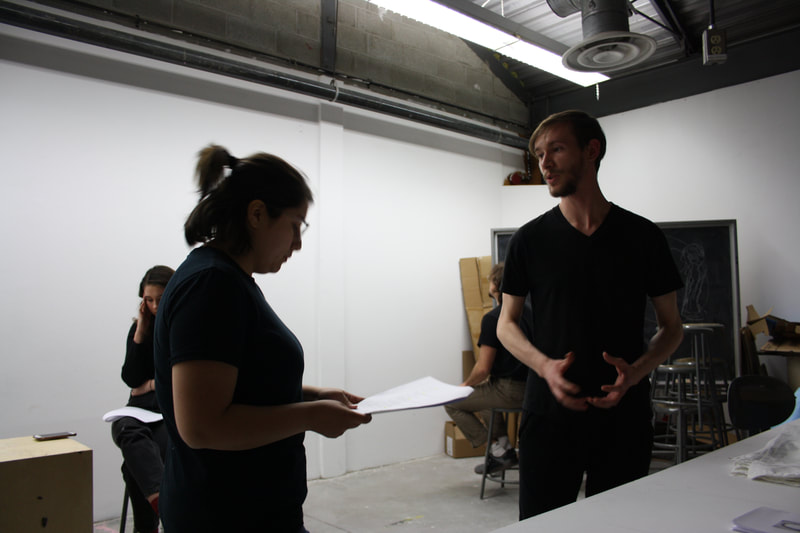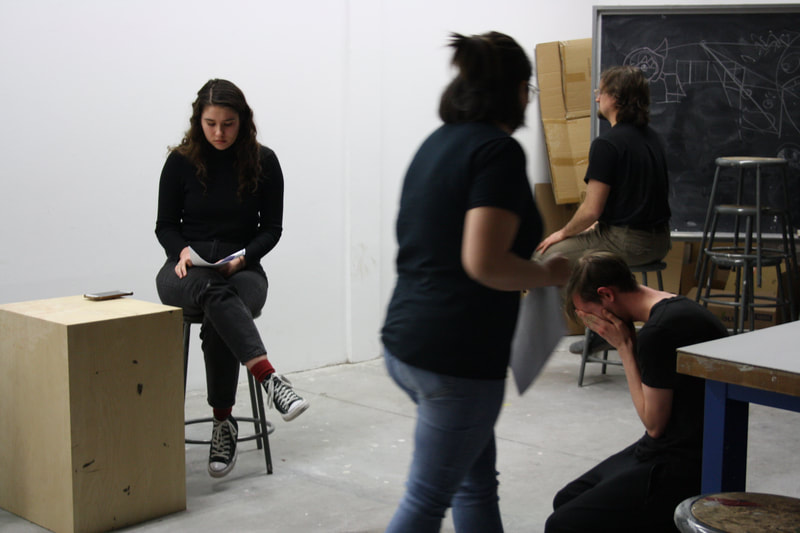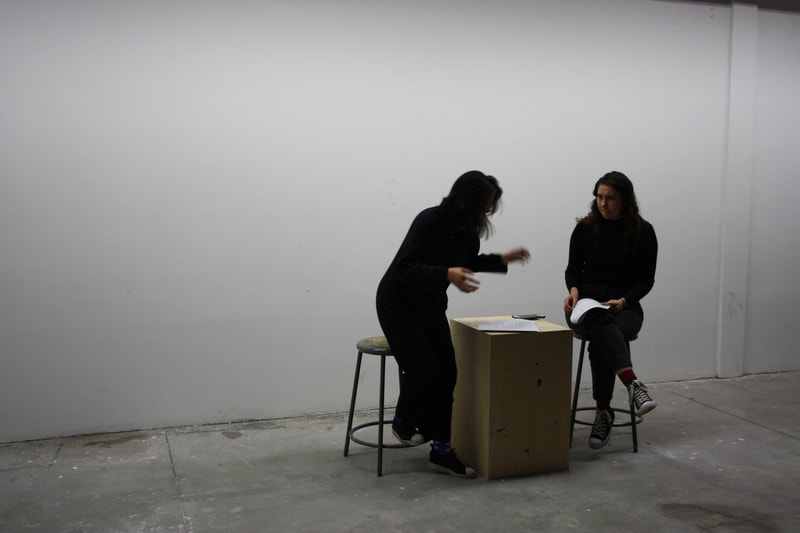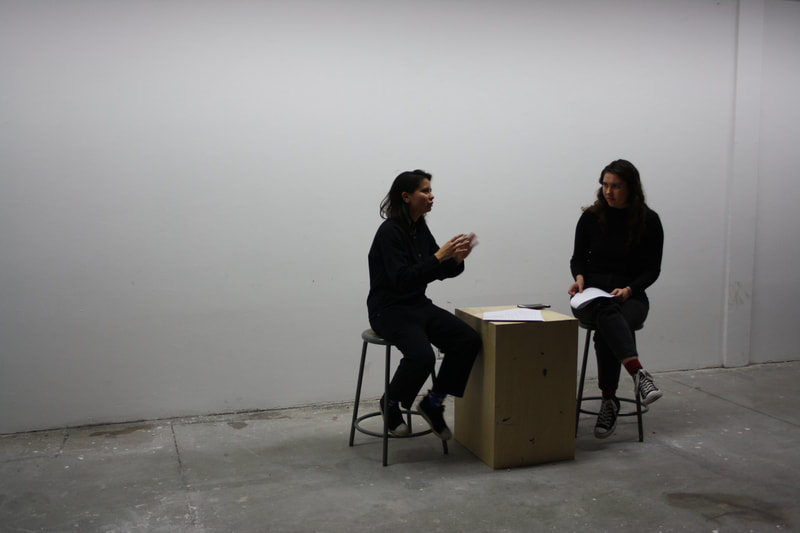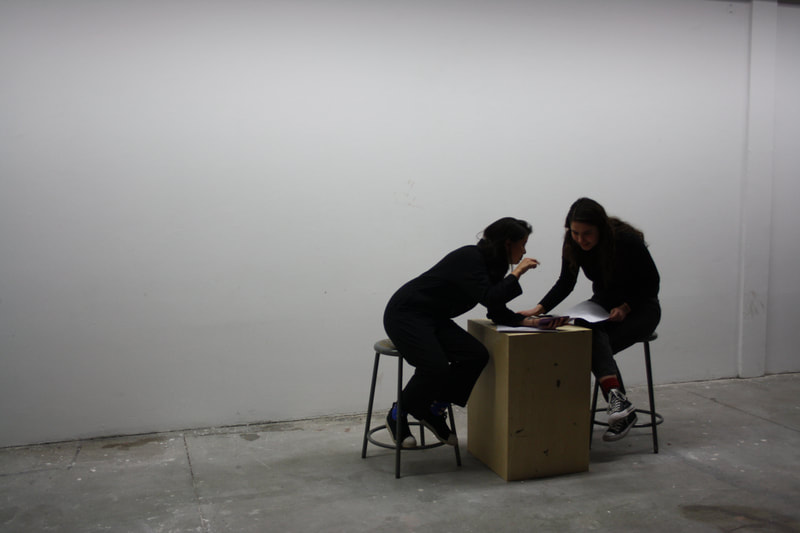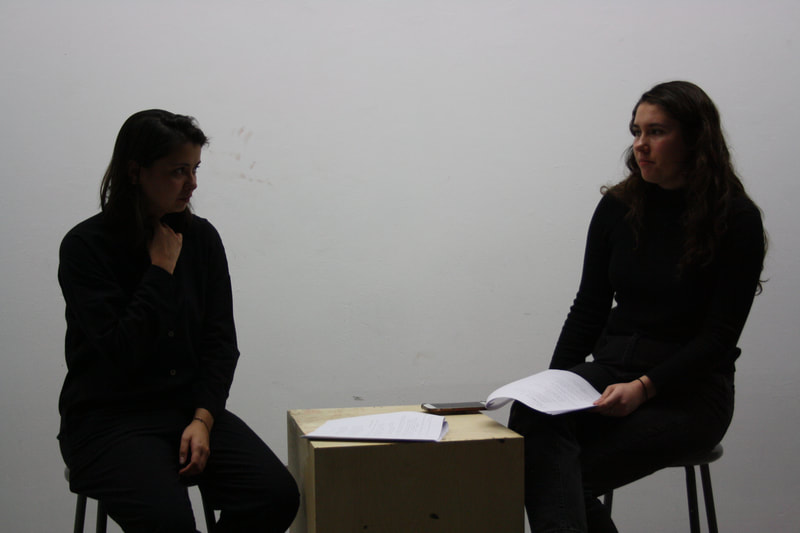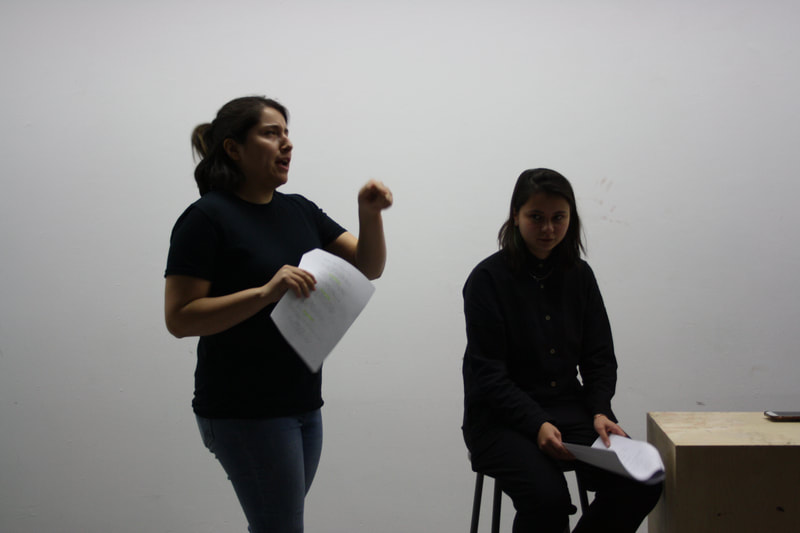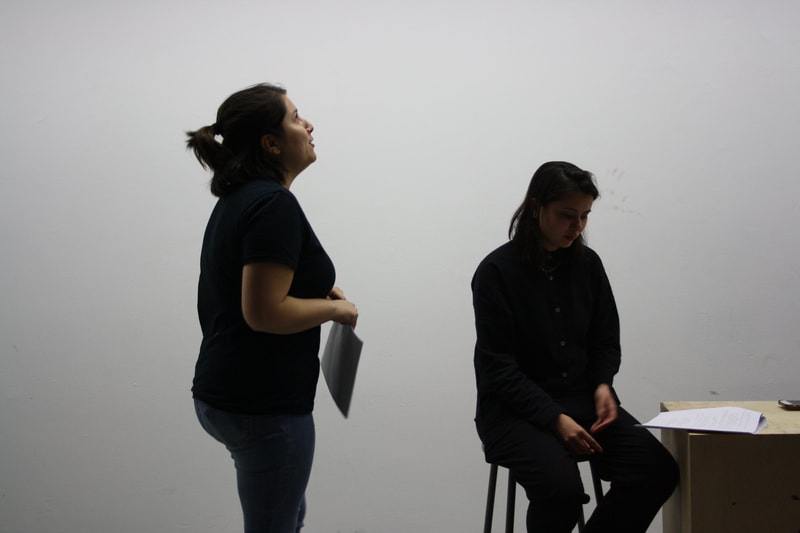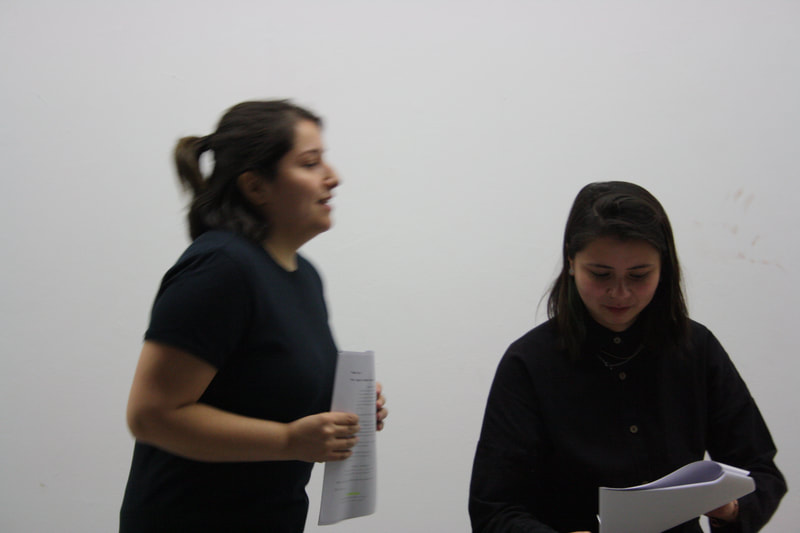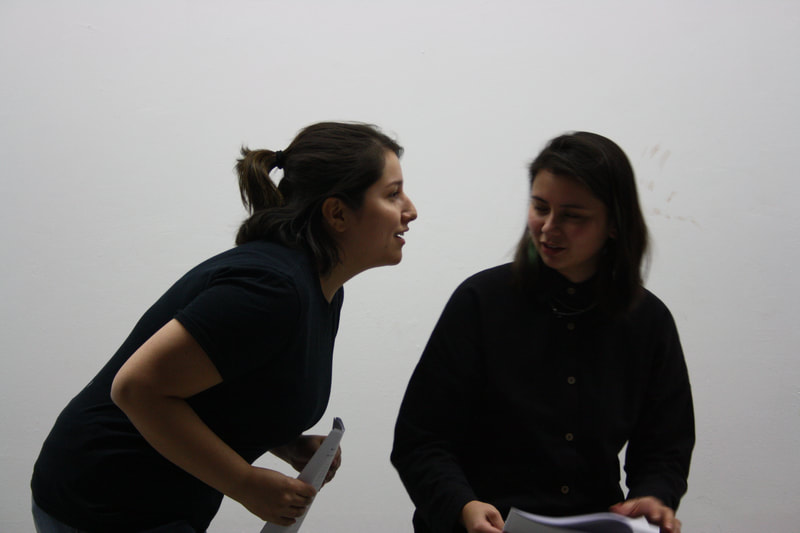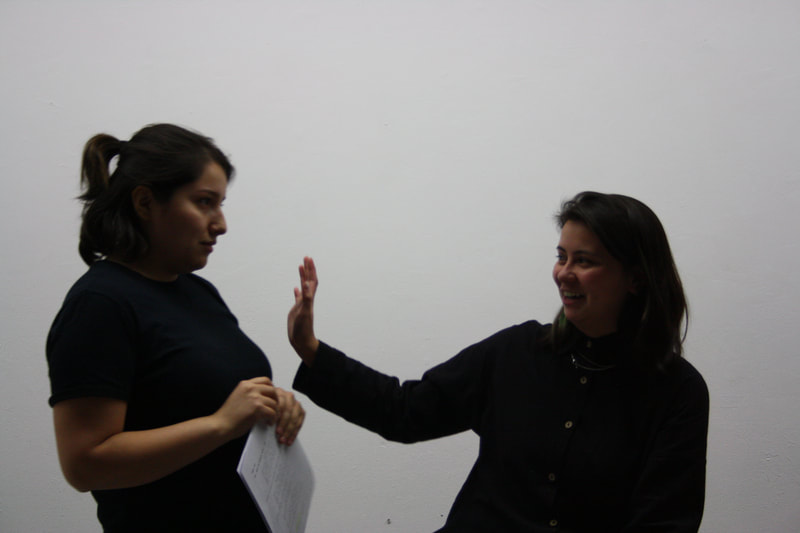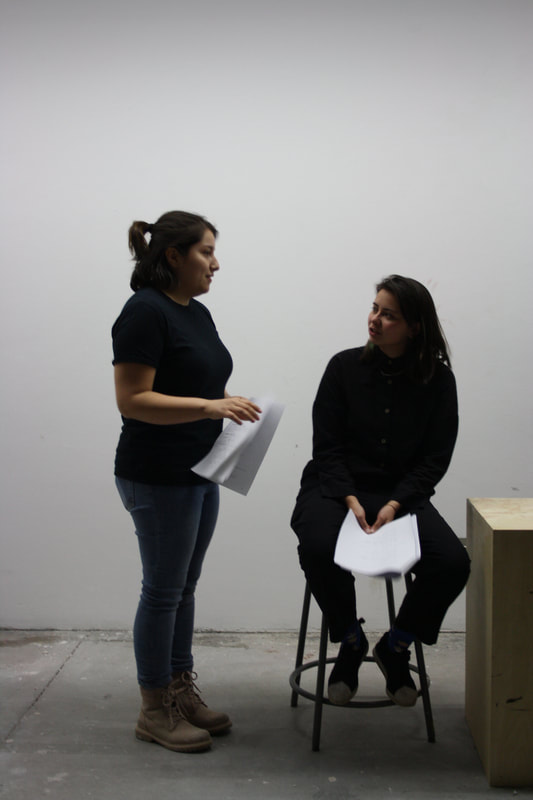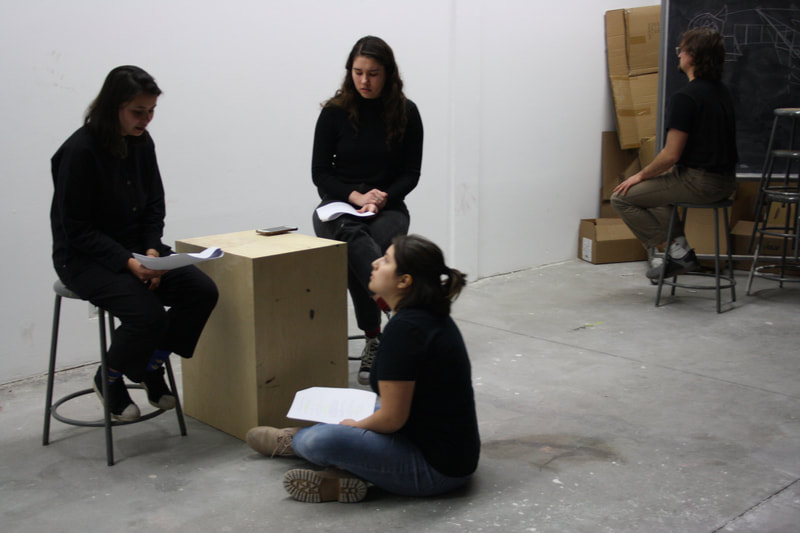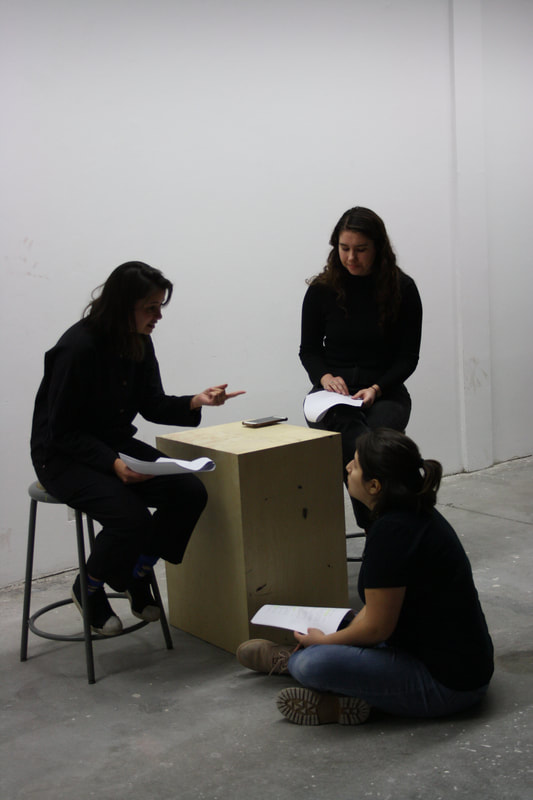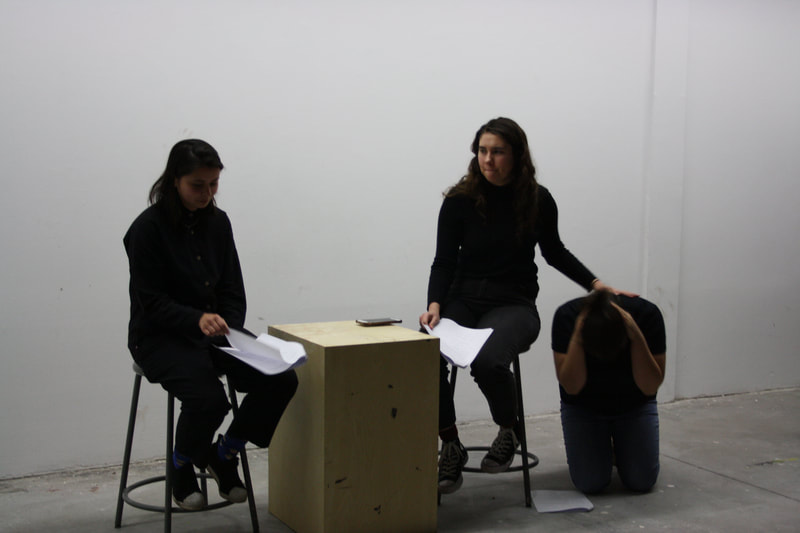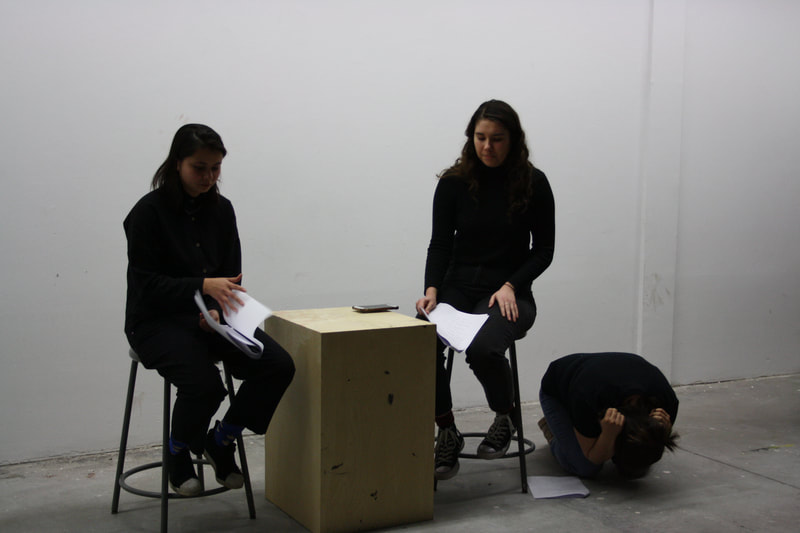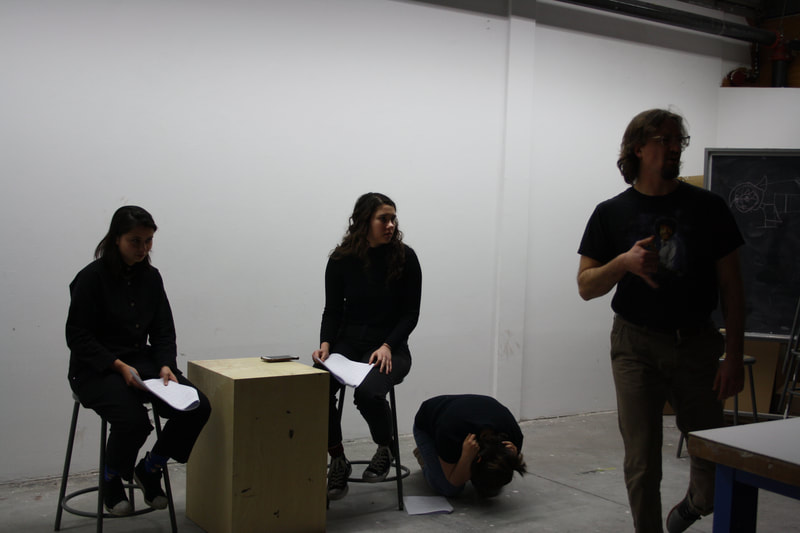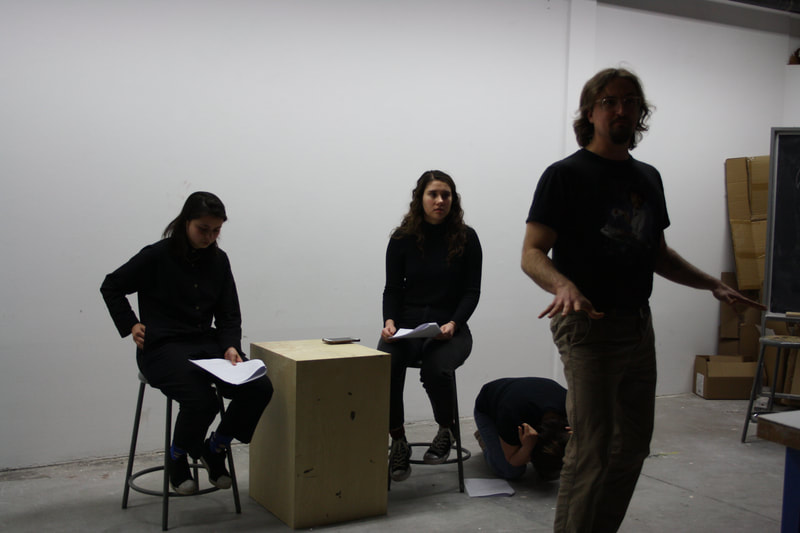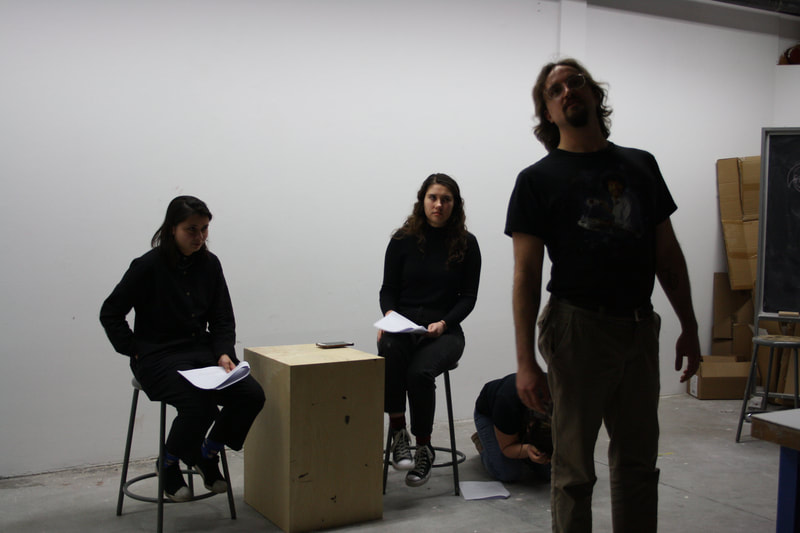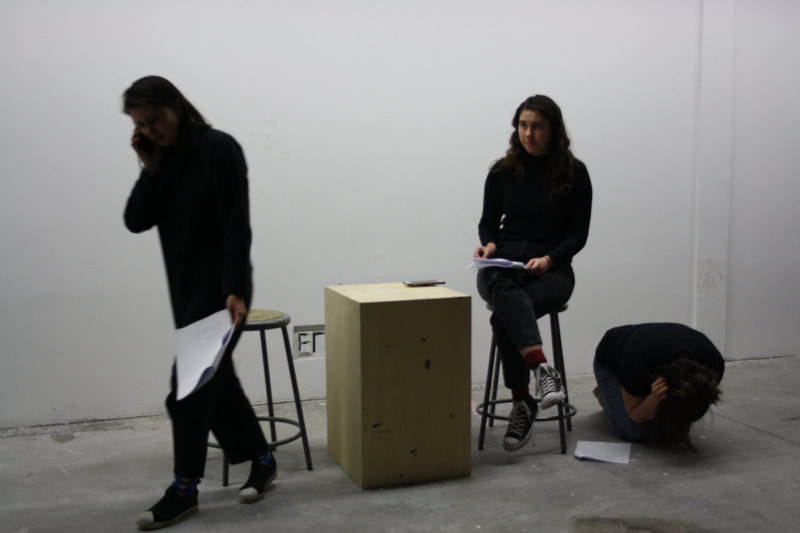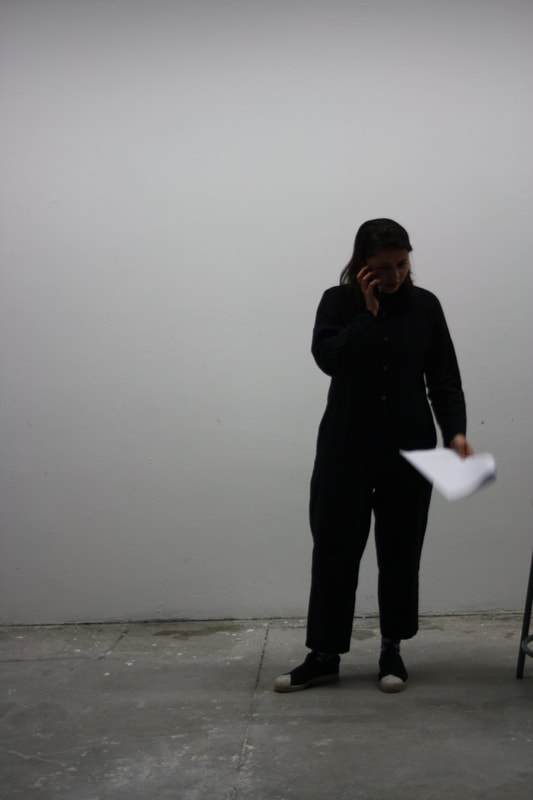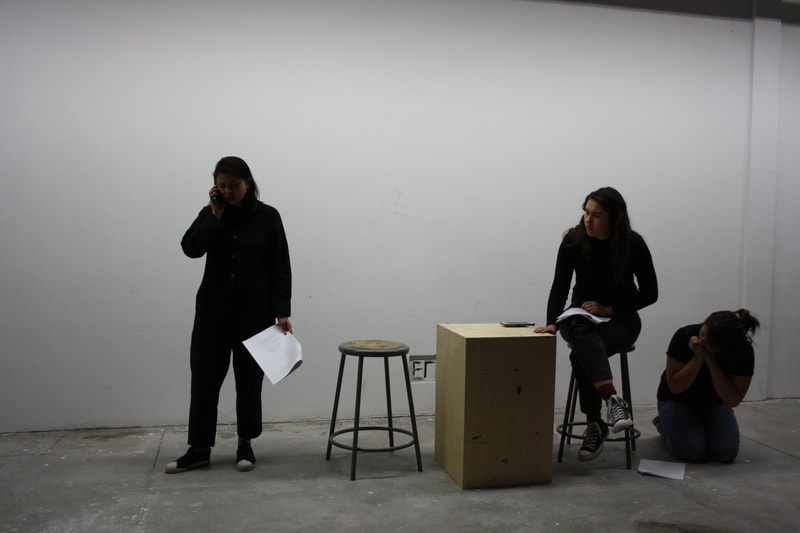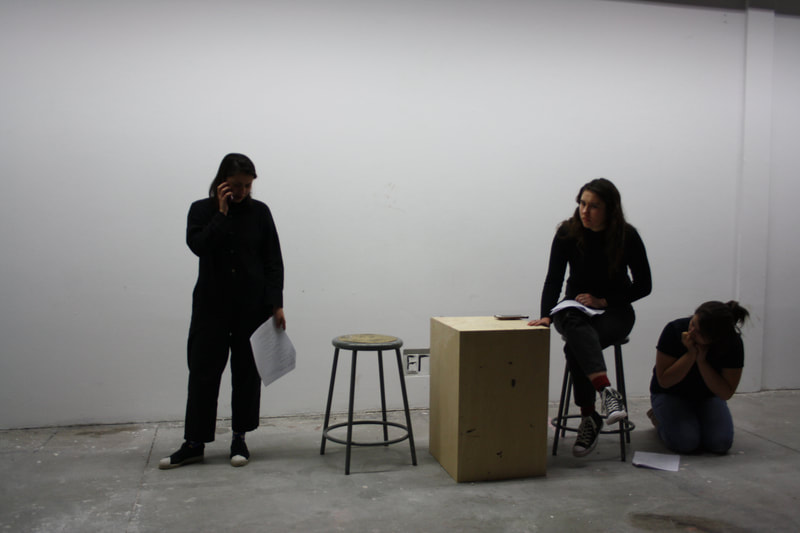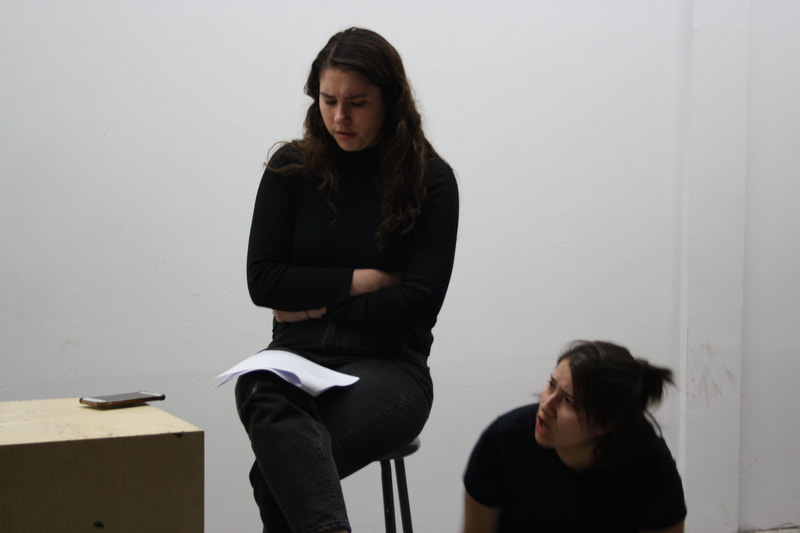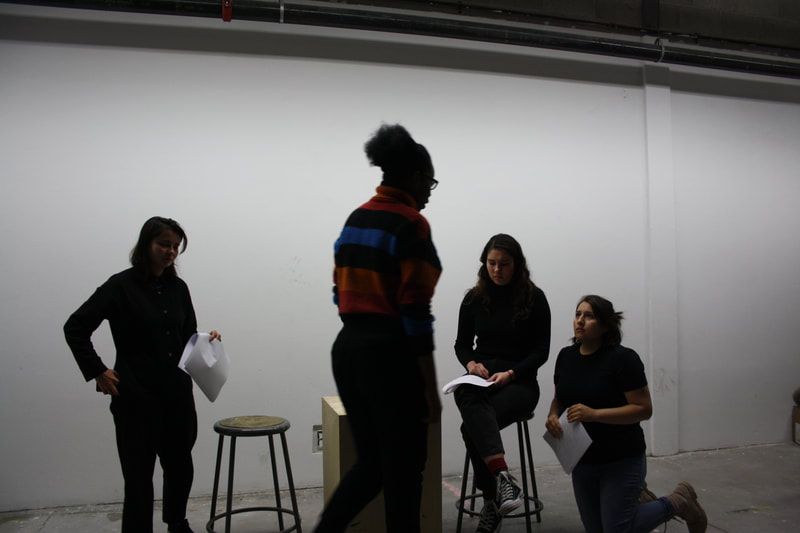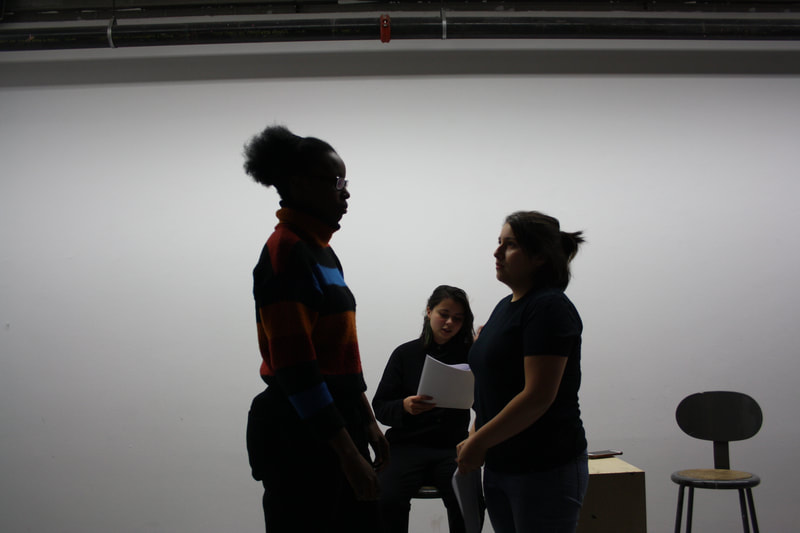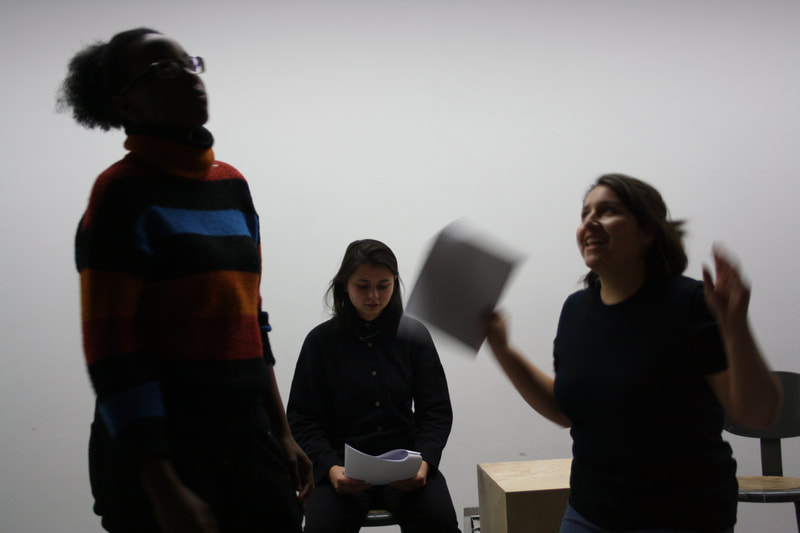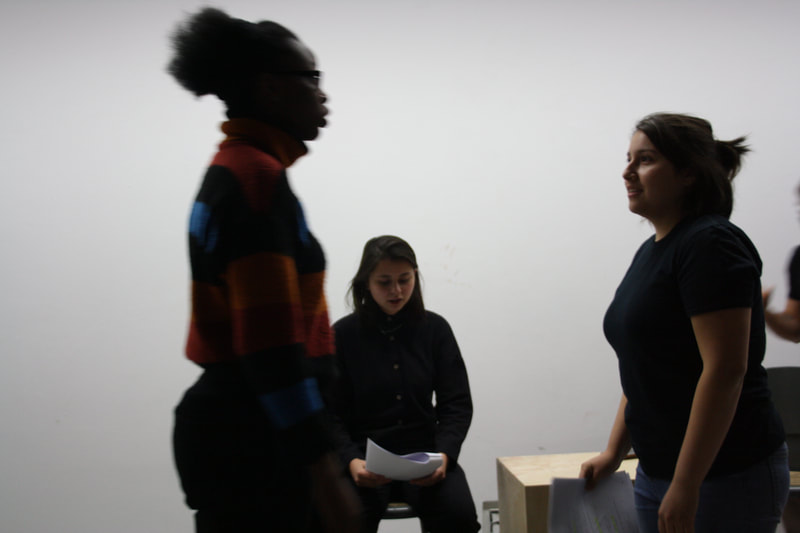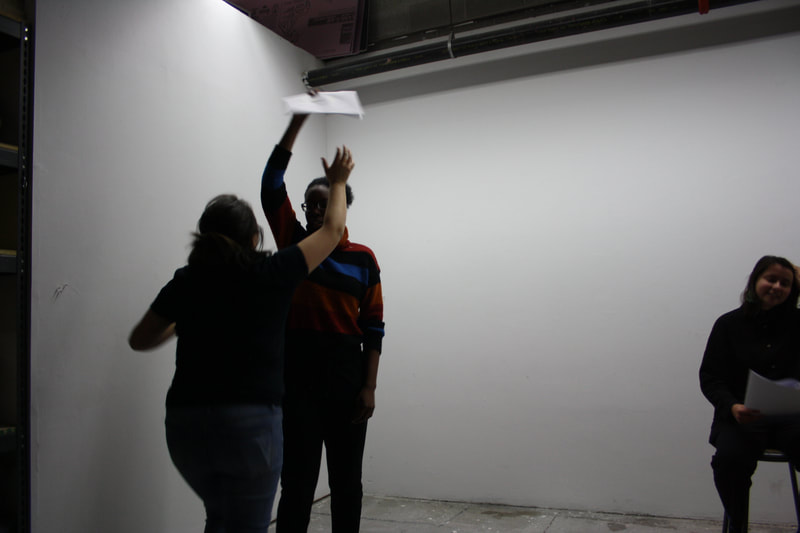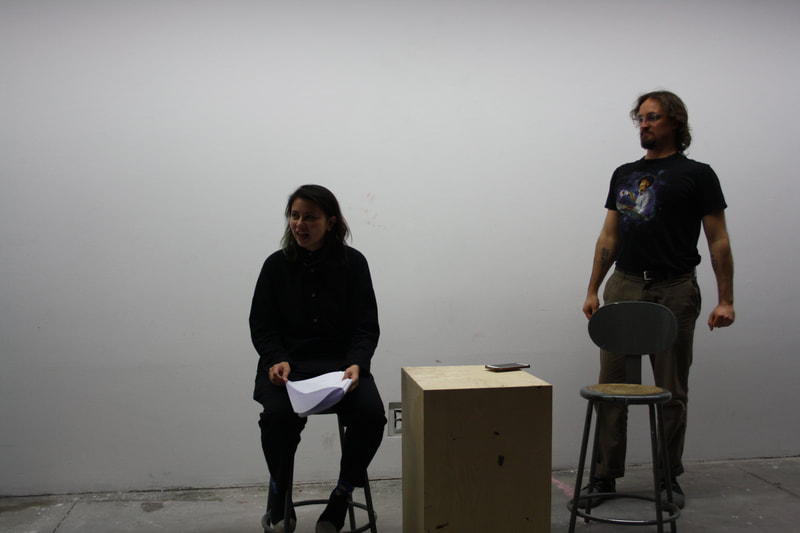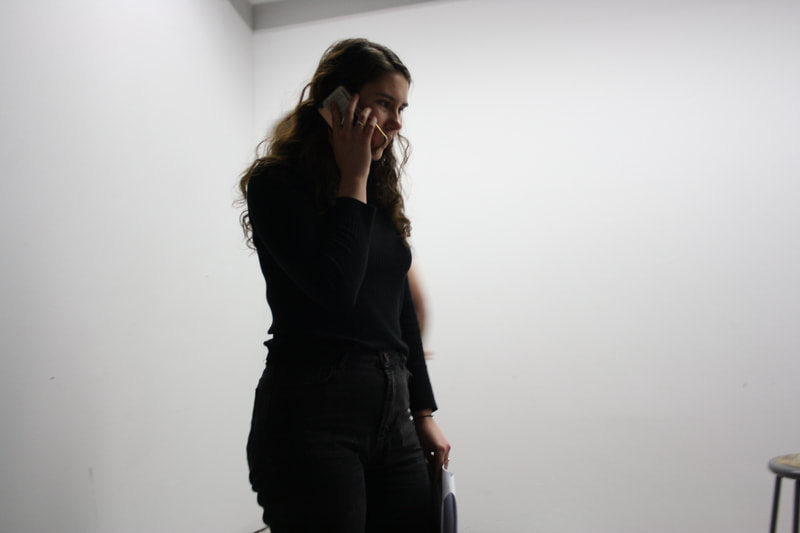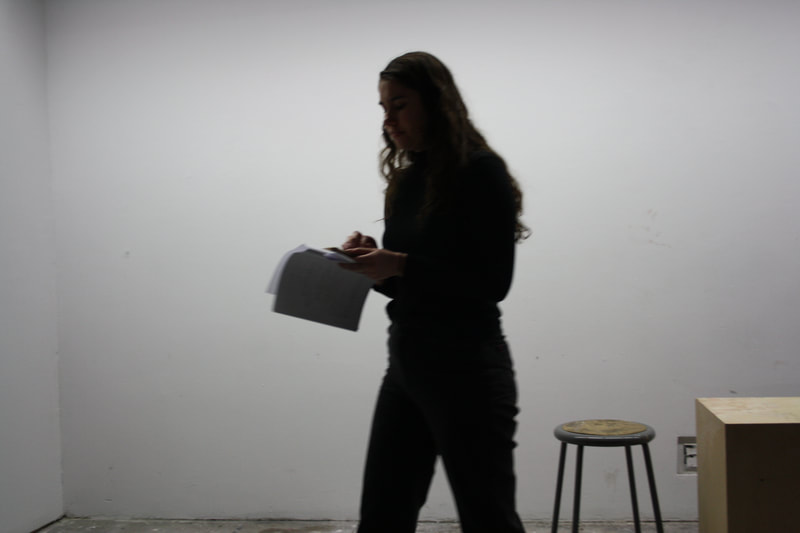act one.
|
|
|
|
when she comes back home, scripted performance piece, 17m, 2020
How can those with addiction affect their loved ones at different periods of their life? When She Comes Back Home (2020) is the first act of an on-going performance that explores the relationship of how alcoholism can influence and form traits within individual members of a family or at a certain age in one's life.
This seventeen-minute scripted performance, self-directed and written by Veronica Spiljak, follows a story of a twenty-one-year-old patient within a therapy room that recounts their living experience with their sister, who suffers from alcoholism. In this context, the artist, Veronica Spiljak, performs the role of this patient. The events that follow in the performance recalls the patient's past, which unfolds their interactions with the rest of the characters. Some of these characters are related to the patient, and others are from different ages of the patient.
The therapy room situates itself within a white room that consists of a table and two empty chairs; one for the patient and one for the therapist. With the minimal stage set-up, the vast hospital stark white wall, the table and chairs create more distance from the audience. The characters in the performance were derived from a script that highlights their interactions with each other and how they talk about their alcoholic sister. In Spiljak's work, the script acts as a guide; the actors performing the script also improvise their own interpretation of "alcoholism", which adds spontaneity and intimate quality to the performance. The participant actors range from fine art students who had no prior acting experience, while others major in theatre. When working with each actor, Spiljak focuses on how they can input their own experiences into these characters to create a personal relatability in the context of knowing someone with an addiction. Actors who have theatre experience understand how to interpret and act out their character with a given scene. Those with little to no experience can understand emotionally and relate their past or current lived experiences to their assigned character.
In creating this work, Spiljak was influenced by her Polish upbringing where drinking is ritualized and normalized. When She Comes Back Home acknowledges the effects of substance abuse as a result of capitalistic burnout and grief can take control over one's life as well as those experiencing it second-hand. Spiljak is interested in how others talk about or handle a situation that involves alcohol or substance misuse. How do these events impact our cognitive behaviour? How may it affect our relationships with others? Addiction can impact those at different stages in their life, whether they are the ones who deal with it themselves or through those around them. Spiljak's performance questions the ways of opening this dialogue of first and second-hand addiction that extends outside of our homes.
This seventeen-minute scripted performance, self-directed and written by Veronica Spiljak, follows a story of a twenty-one-year-old patient within a therapy room that recounts their living experience with their sister, who suffers from alcoholism. In this context, the artist, Veronica Spiljak, performs the role of this patient. The events that follow in the performance recalls the patient's past, which unfolds their interactions with the rest of the characters. Some of these characters are related to the patient, and others are from different ages of the patient.
The therapy room situates itself within a white room that consists of a table and two empty chairs; one for the patient and one for the therapist. With the minimal stage set-up, the vast hospital stark white wall, the table and chairs create more distance from the audience. The characters in the performance were derived from a script that highlights their interactions with each other and how they talk about their alcoholic sister. In Spiljak's work, the script acts as a guide; the actors performing the script also improvise their own interpretation of "alcoholism", which adds spontaneity and intimate quality to the performance. The participant actors range from fine art students who had no prior acting experience, while others major in theatre. When working with each actor, Spiljak focuses on how they can input their own experiences into these characters to create a personal relatability in the context of knowing someone with an addiction. Actors who have theatre experience understand how to interpret and act out their character with a given scene. Those with little to no experience can understand emotionally and relate their past or current lived experiences to their assigned character.
In creating this work, Spiljak was influenced by her Polish upbringing where drinking is ritualized and normalized. When She Comes Back Home acknowledges the effects of substance abuse as a result of capitalistic burnout and grief can take control over one's life as well as those experiencing it second-hand. Spiljak is interested in how others talk about or handle a situation that involves alcohol or substance misuse. How do these events impact our cognitive behaviour? How may it affect our relationships with others? Addiction can impact those at different stages in their life, whether they are the ones who deal with it themselves or through those around them. Spiljak's performance questions the ways of opening this dialogue of first and second-hand addiction that extends outside of our homes.
©
2023 Veronica Spiljak, All Rights Reserved

